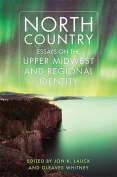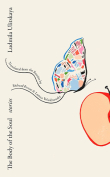Quarantine Notes: Aphorisms on Morality and Mortality by Yahia Lababidi
 Burlington, Vermont. Fomite Press. 2023. 168 pages.
Burlington, Vermont. Fomite Press. 2023. 168 pages.
In these days of seconds-long sound bites and granular social media posts, the impression one gets reading through Yahia Lababidi’s latest book is at once familiar and highly distinctive. Familiar in that his thoughts are expressed in short, easily digestible little phrases, yet distinct in that his words are not meant to elicit an immediate vitriolic response. Instead, Lababidi invites us to sit with each aphorism and consider the weight of every word and how they come together to express a particular thought.
Written throughout the Covid-19 pandemic, Quarantine Notes focuses predominantly on such weighty issues as life and death, love, art, community, faith, justice, and other issues close to Lababidi’s heart as well as the long tradition of Sufi philosophy that he proudly continues. Though many of his aphorisms could have drawn inspiration from any number of situations in the modern world, the often confused and divisive response to the pandemic clearly underpins many of the thoughts recorded in the book. As he notes in the brief preface, the “pandemic served as an enforced mass meditation for us all,” and yet “its lessons [have been] hardly digested” as society has attempted to jump back into normal activity with hardly a second thought. Lababidi’s thoughts provide an avenue for everyone to slow down and reflect on the many difficult experiences everyone has been through in the past few years and what they mean for both individuals and society at large.
One of the greatest strengths of Lababidi’s aphoristic works is how he can follow pithy phrases and witty twists to clichés with absolutely arresting images that also carry immense philosophical weight. Though frequently humorous and lighthearted in the face of normally somber topics, he also possesses an amazing ability to paint simple pictures of devastating import. In one of his most moving lines, he encourages us to “walk so that you do not frighten small birds away,” which provides a startlingly clear and poetic image that puts humanity’s tendency toward carelessness and lack of perception in high contrast. Lababidi excels with such ideas, creating stark illustrations that shake the reader from their everyday conceptions to experience a completely different perspective, often that of the natural world as it responds to human activity, a common trope in mystic literature throughout the ages. Quarantine Notes abounds in such powerful imagery told with an extraordinary economy of language. Lababidi is keenly aware of how the digital age has affected people’s attention spans, and he chooses words that express the ineffable yet remain eminently accessible for readers used to 280 characters or less. At the same time, the book covers a fantastic range of topics in its scant 130 pages, touching on nearly every aspect of the human condition.
Quarantine Notes is not a book to be read in one short burst, but something to pick up at different moments where the mind is quiet and open and able to savor the music of Lababidi’s language, the depth of his compassion (even for people with whom he may deeply disagree), and the range of feeling—comforting and hopeful but also yearning and striving for something better—with which he puts it all together. Frequently, an aphorism that may have at first seemed merely a witty observation on some human foible will come to mind days later with an absolutely arresting force, opening one’s eyes to the multifaceted meaning revealed in every action and the vast difference even a subtle shift in perspective can make in how we interact with one another in the world.
Z. McGrew
Oklahoma City





































